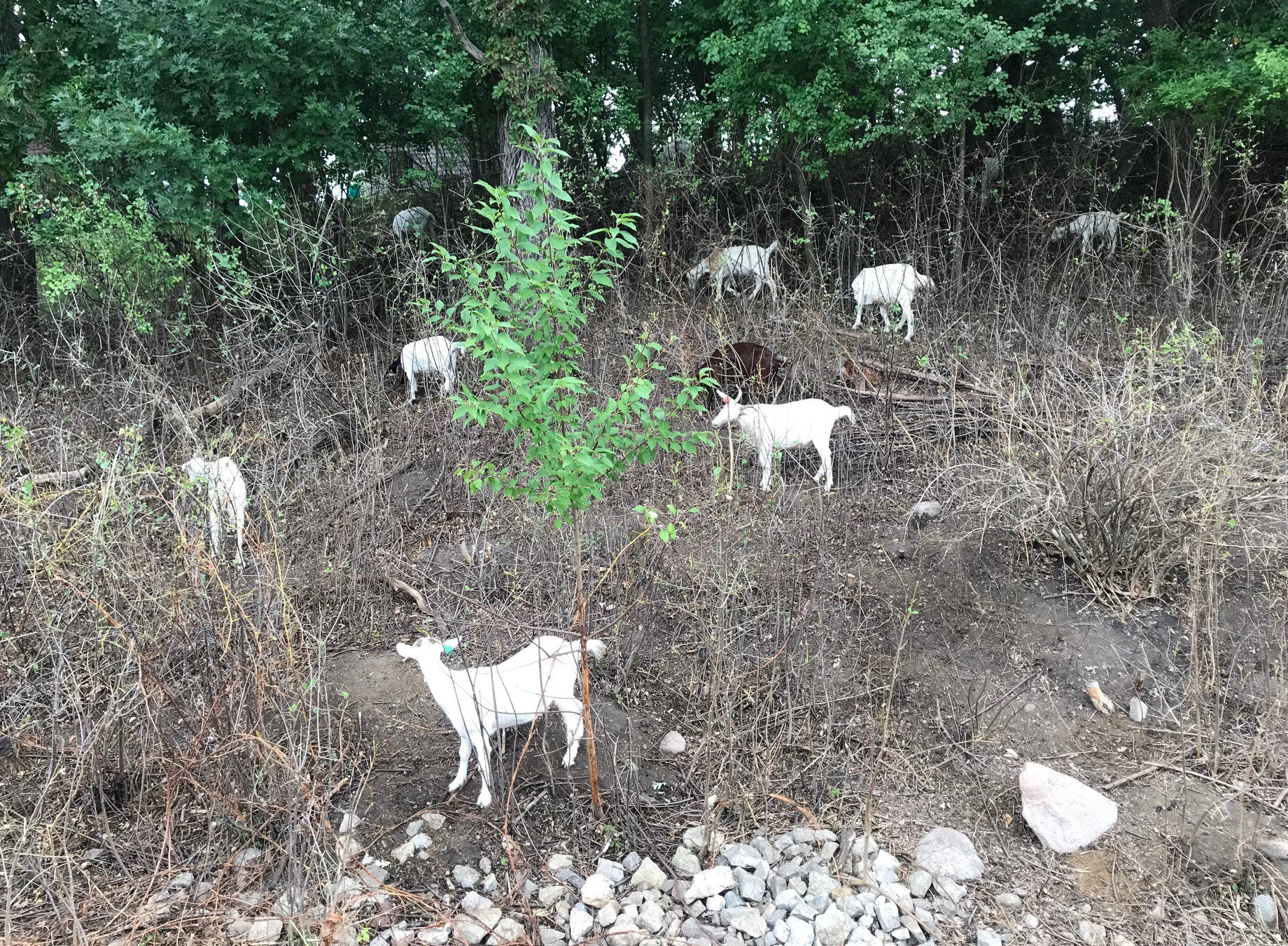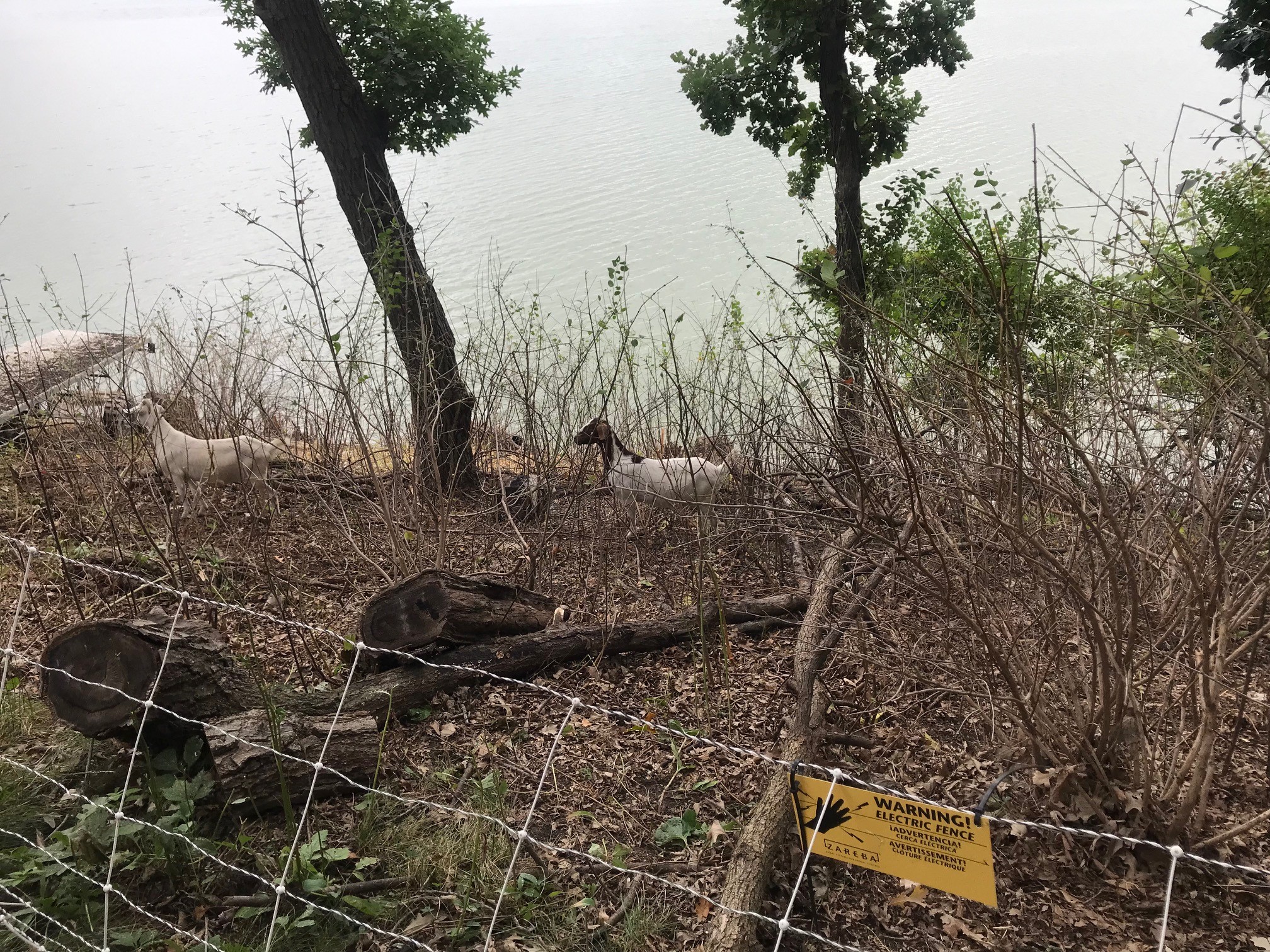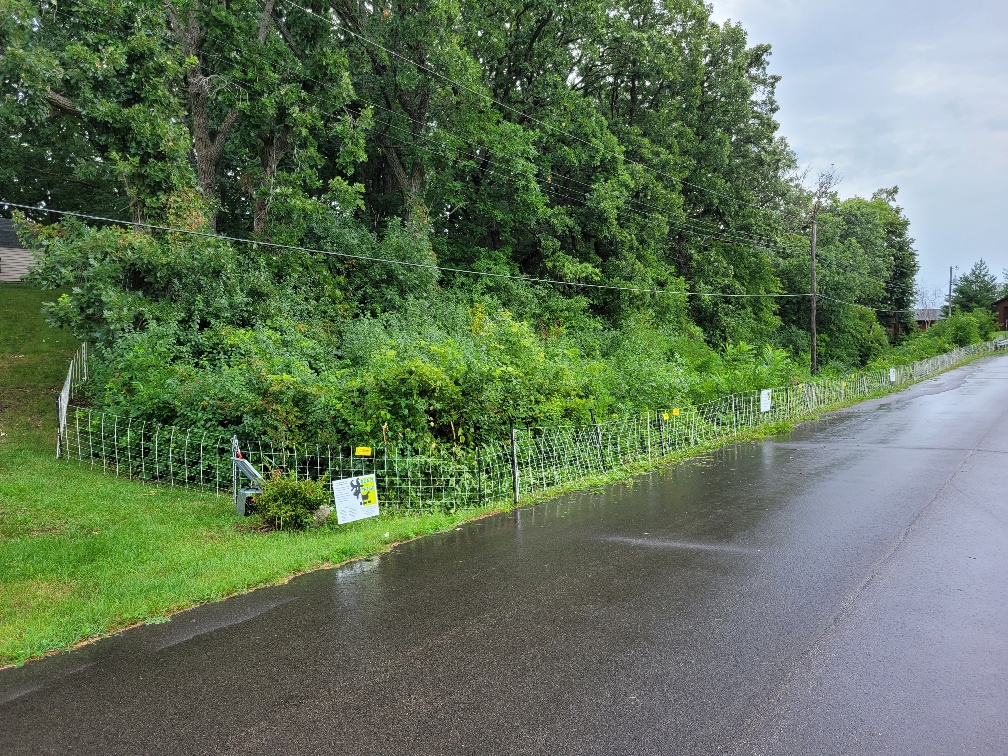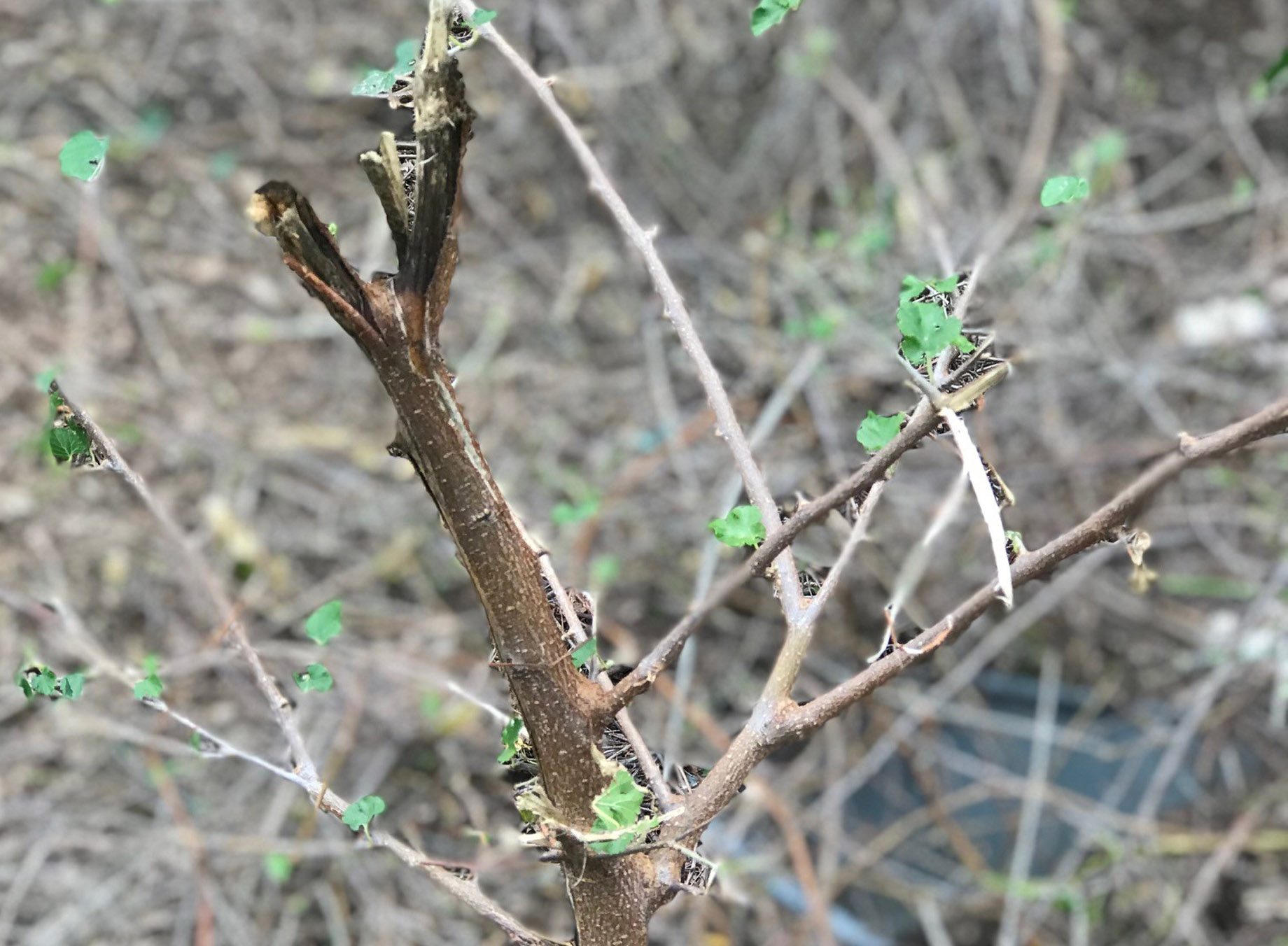Who let the goats out?
City tries natural technique for managing undesired plants
The City of Albert Lea recently hired Goats on the Go, a southern Minnesota company that provides prescribed grazing to control vegetation. The city owns land on Eunice Drive atop a bluff over Albert Lea Lake. Buckthorn and other undesired plants had overtaken the property and was spreading to residential lots. Instead of mowing or applying herbicides, which can lead to erosion and runoff that hurt water quality, the city decided to try this natural technique.
For $900, 32 goats spent 13 days eating across about 1 acre of land. Wayne Sorensen, city building official, was pleased with the results. He “definitely” recommends prescribed grazing to landowners, especially those with steep slopes and shoreland.
A few aspects to note:
-
- One round of prescribed grazing does not provide permanent control. Like mowing or other techniques, it needs to be repeated. The frequency depends on the desired outcome.
- Goats eat several species of plants, not just the undesired ones.
- Like other livestock, goats generate odors.
Advantages include:
-
- No air pollution from mowers and other equipment.
- Goats can go where people often cannot, such as extremely steep slopes.
- Seeds are not typically viable after being eaten by goats, which helps reduce the spread of noxious weeks and invasive plants.
- Less impact to the environment overall.
The City of Albert Lea only allows goats for prescribed grazing. If hiring this service, the contractor needs a city permit, available from the Planning and Development Department on the ground floor of City Hall, 221 E. Clark St.

Prescribed grazing with goats is much less impactful to the environment than mowing or herbicides, especially in shoreland areas.

Goats graze on buckthorn and other plants on city-owned property on a bluff over Albert Lea Lake.

Before the prescribed grazing, this acre on Eunice Drive was covered in buckthorn, an invasive species, and other vegetation.

A total of 32 goats ate their way through 1 acre on Eunice Drive, for a fee of $900, removing nearly all brush shorter than 4 feet.
